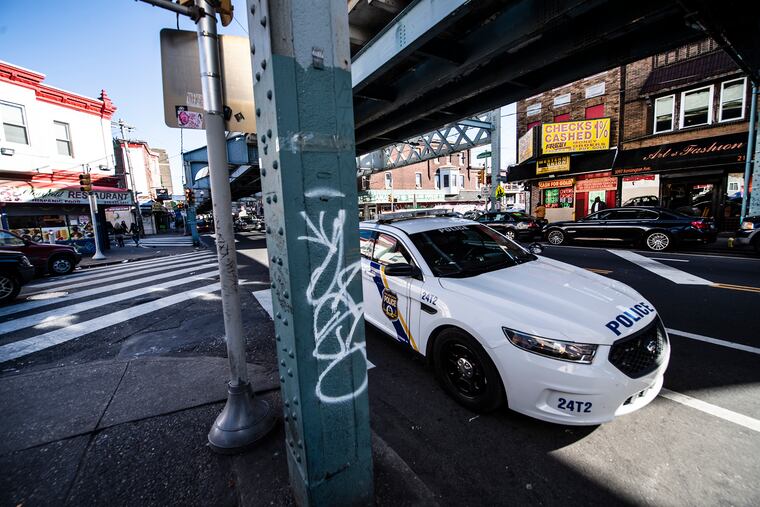Over-policing of minor infractions will lead to another murder like George Floyd’s | Opinion
Car stops and “quality of life” policing lead to more discrimination without improving public safety.

When the nation heard the Chauvin verdict of “Guilty. Guilty. Guilty” it felt as if millions of people collectively exhaled in relief. All it took for justice to occur was over nine minutes of heart-wrenching footage of murder, the testimony of the city’s police chief and other police supervisors, and a public pressure campaign to ensure that the prosecutor’s office did not ease up in their responsibility to treat all members of the public equally—but justice did in fact prevail. Yet with police killings and police misconduct continuing to occur and dominate headlines for months after the Floyd murder, it is clear that we need to do a greater re-evaluation of policing.
One theme in videos of police killings and aggression that have gone viral is how low the stakes often are for the initial alleged crime. Officers have “taken down a perp” for reports of such offenses as selling loose cigarettes (Eric Garner), selling CDs while simply carrying a gun (Alton Sterling), or in George Floyd’s case, using a fake $20 bill. The minor nature and lack of immediate public safety concerns of these offenses did not lead to officers taking a more relaxed approach to apprehension.
» READ MORE: A leaked memo suggests Philly police use vehicle stops to get around stop-and-frisk reform
Nowhere is this more apparent than policing of traffic violations. Philadelphia had over 100 deaths due to car crashes in 2020. Motorists treat 25 MPH Lincoln Drive like a racecourse, with the unsurprising result of cars crashing, blocking the Wissahickon trail plus crosswalks and sidewalks, forcing pedestrians into traffic, and killing and maiming people. Despite this carnage on our streets, you rarely see anyone pulled over in Philadelphia for dangerous driving.
Yet there is one police targeting of motorists you do tend to see here: the motorized stop and frisk. A platoon of police vehicles blocks off the vicinity, the occupants of the car stand outside, held prone against the vehicle, while officers and their dogs rifle through their possessions. Because illegal driving is common in Philadelphia and nationwide, it is easy to find a pretext for these stops. While only 0.17% of these stops in Philly result in the capture of an illegal gun, 75% of them target Black drivers.
» READ MORE: How much money will it take for Philly police to stop having to apologize? | Editorial
In Minnesota, Daunte Wright was hanging an air freshener from his rearview mirror, which is apparently illegal in many areas. In Virginia, Lt. Caron Nazario had purchased a new car and did not have permanent tags yet. A stopped driver might have forgotten to use a turn signal, have windows tinted too darkly, or some other minor offense. Because these rules, while intended to promote public safety, are enforced so infrequently and irregularly, they lend to discriminatory practices by their very nature. This enforcement strategy certainly is not leading to safer outcomes for Philadelphians either.
The same is true of the recent push by the police to have a greater police response to local concerns about “quality of life issues.” As a lifelong Philadelphian, I certainly understand concerns over filthy streets, drug needles in front of your house, and people taking shelter in El stations. Failure to adequately address quality of life concerns depresses SEPTA ridership, disproportionately affects our poorest communities, and creates an on-the-ground reality of two Philadelphias: a clean one in places like Center City West, Society Hill, and Queen Village and a filthy one elsewhere. But it’s worth asking if greater policing will really have an effect on these things, especially given current policing strategies. Are we going to see Kensington and Aramingo cleaned up, and homelessness and drug use in the neighborhood addressed? Or will we see more heavy-handed policing that can lead to death for those apprehended?
» READ MORE: N.J. police chief: Every good cop felt relief at Chauvin verdict | Opinion
When we think about how to fix these endemic issues, we should think about George Floyd and Daunte Wright, Eric Garner and Alton Sterling, and others whose names we don’t yet know. And these issues affect white and other non-Black Americans too. The principles of Black Lives Matter may have been generated in response to the killings of unarmed Black people but the ideas are pertinent to situations like Karen Garner, a 73-year-old dementia patient who had her arm broken during arrest. Garner struggled to comply due to her condition, but this did not stop officers from treating her violently, again over a minor offense.
If we are going to make police a part of fixing Philadelphia’s quality of life, we need to reorient policing around that goal, and away from the stop-and-frisk warrior model that the city’s voters have repeatedly rejected. We need consistent, frequent, and measured application of laws. Instead of officers spending their entire shifts in their vehicle, we need them on foot—a friendly, visible presence rather than a reactive force. Until then, we are just asking to become the next Minneapolis.
Dan Pearson is a writer and lifelong Philadelphian who lives in South Philadelphia with his family.